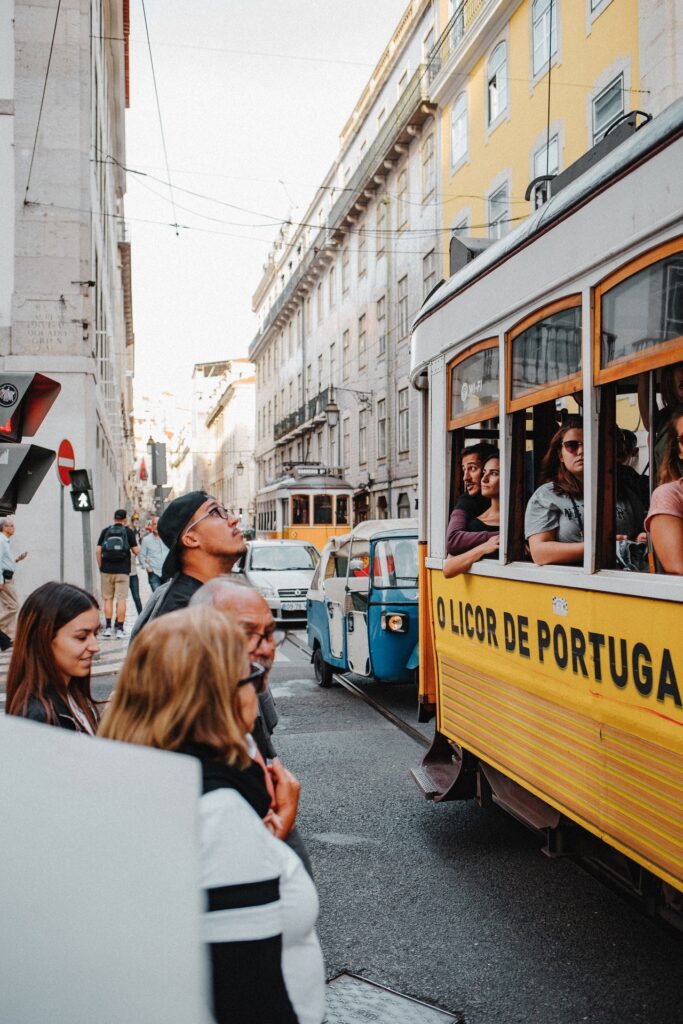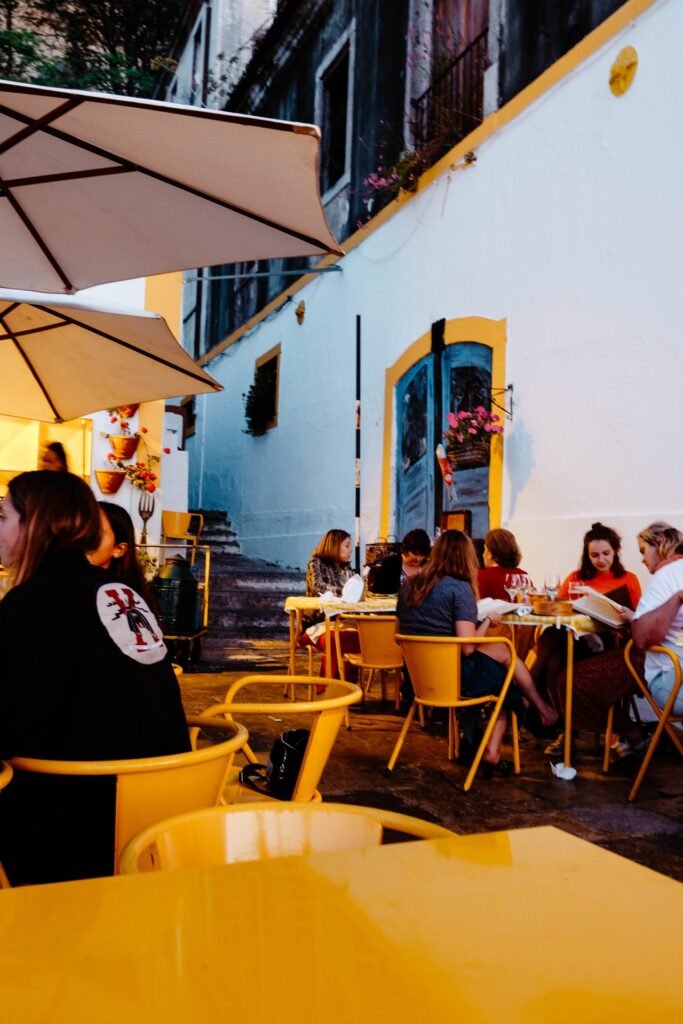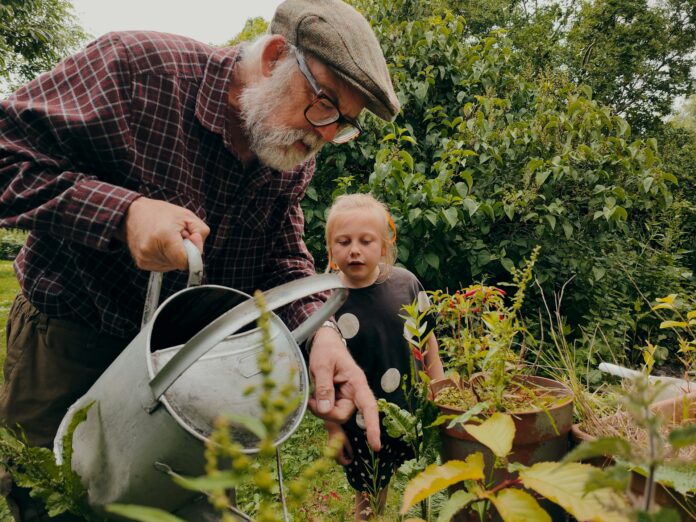We probably don’t need to tell you that the global coronavirus pandemic has likely changed the way we live and work forever. Though many in the UK anticipate a return to the office at some point this year, experts predict that the majority of us will continue working remotely in some capacity for, well, ever.
As travel restrictions are lifted, we’re set to see the return, and the rise, of digital nomads. With a new found freedom to work remotely releasing you from the confines of a single city, where would you live and work if you could choose anywhere?
How about Portugal? Lisbon, the capital of Portugal, has long been well known for its reputation as a smart, secure relocation choice for freelancers and digital nomads alike. What’s more, earlier this year it was announced that the first digital nomad village in Europe was about to open on the tiny volcanic island of Madeira, offering a free workspace and a wonderful sense of community for those staying for a month or more. Whilst Portugal has always been attractive to digital nomads, drawn in by its agreeable climate, warm hospitality and fantastic food, that announcement has certainly improved the country’s appeal.
Once national and international law permits it, if you’re considering a fresh start, then here are 6 tips for digital nomads moving to Portugal.
CONSIDER ISLAND LIFE ON PONTA DO SOL
Let’s explore that Digital Nomad Village in a little more detail. The Village sits on the island of Ponta Do Sol and offers a free working space, access to a #slackcommunity and free internet access from 8 am to 10 pm every day, all hosted at the John do Passos Cultural Centre in the village centre.
Considering the logistics of entry, TripSavvy reveals more; “Remote workers coming from outside of the European Union will need to apply for a 90 day Schengen visa before arrival. You also don’t have to pay exorbitant amounts of money to participate, everything is pretty much at cost. Housing suggestions are offered on the site via Airbnb listings and hotels offering long-stay rates plus discounts and perks (like free breakfast) for village participants. Digital nomads can register to reserve their spot as we speak. To learn about Madeira’s COVID-19 protocols, check out the Madeira Safe to Discover website.”
For digital nomads tired of working alone and keen to meet like-minded people, this sounds like an appealing, convenient option. That said, one of the perks of digital nomadism is the freedom associated with it, to explore and engage with cultures and communities far removed from your own. Being on an island, Lord of the Flies style, in a dedicated digital nomad community rather mitigates this.
THE ALGARVE
Instead, have you considered the Algarve? Portugal’s southernmost region, the area nicknamed ‘The End of the World’ needs little in the way of introduction, but we’ll introduce it nonetheless. Blessed with idyllic scenery, and intoxicating and alluring in equal measure, the Algarve has put itself firmly on the map as Portugal’s flagship tourist destination in recent decades.
But it’s not just tourists who are attracted to the Algarve. Digital nomads flock here in droves to enjoy miles of beautiful coastline, luxuriating in the predictably warm weather but cursing the sometimes temperamental internet when they get here. It should be noted that accommodation in the Algarve tends to be on the more expensive side, and you’ll struggle to find anywhere affordable to stay during the region’s high season, between June and September.
That said, the cost of living is generally pretty affordable, and positively cheap compared to the UK. What’s more, the majority cafes and restaurants offer free wi-fi and the slow pace of life here means you won’t be disturbed over your espresso and emails. Should you have a car, the Algarve boasts some truly scenic roads. If you don’t drive, you might find the transport rather unpredictable here.
So, if you’re comfortable completing your work from a cafe, the Algarve could well work for you. If you need a more fully fledged operation in a rented apartment, perhaps you’ll find Lisbon better suits your needs…
IT’S ALL ABOUT LISBON
Lisbon boasts a reputation as being one of the best places for digital nomads to live in Western Europe, with a low cost of living, fantastic local food, loads of sunshine, a super-fast internet (17th in the world, if you’re asking) and warm residents, visitors will find a convivial way of life here which welcomes remote workers with enthusiasm.
The Alfama district is at the centre of Lisbon’s global community, with the Independent saying that “here, between the ancient houses that rise from the Tejo Estuary to the majestic Castele de Sao Jorge, you’ll find a community of young people from all around the world who’ve settled in the Portuguese capital and made it their home’’. Sounds idyllic to us!
Sure, you’ll need food to fuel those hours spent at co-working spaces or tap-tap-tapping away from your urban apartment, and rest assured, from sardines to bifana, and prego to pastel de nata, it’s a marvellous city to eat in. To help you get inspired (and no doubt hungry), here are some of our favourite things to eat in Lisbon, as well as some of the best restaurants to eat at in the city, including the cherished institution that is Cervejaria Ramiro, one of our favourite restaurants in the world! We’d move to Lisbon just to be closer.


NETWORK & MAKE FRIENDS
Being a digital nomad can get lonely, make no mistake. Luckily Portugal has loads of communities and networking opportunities for those looking to meet like-minded people on both a professional and personal level.
Some Lisbon networking groups you could join include Digital Nomads PT, Lisbon Digital Nomads and Lisbon Digital Nomads‘ public Facebook group. Alternatively, you can meet fellow digital nomads at the vast LX Factory complex, as well as Outsite Lisbon and the Second Home workspace, perched on top of the Mercado da Ribeira.
CONSIDER BECOMING IN RESIDENT VISAS
Should Portugal steal your heart and you decide to settle here for longer, new rules open up the opportunity to make Portugal your home full-time.
If you want to stay in the country for longer than 150 days, you need to register as a resident; if you’re from outside the European Union, check the applicable regulations that apply to where you’re from, though in general, Portugal is very amiable to foreign residents making it their home. UK citizens are advised to follow Brexit developments closely, as residency has become a little complex since the start of the year. That said, the Portuguese government are keen to welcome more long term visitors, and have made the process of moving there easier as a result.
As highlighted in Expat Exchange “the government of Portugal has brilliantly gone out of its way to attract tech startups and the tech talent that they know they’ll attract. They have added a special visa for anyone starting tech start ups.”
The scheme offers a more general Portuguese residency through investment, too. The programme, which is widely known as the “Golden Visa Programme” has recently had a change in legislation. Up until now, the majority of investment for Golden Visa has been focused on Lisbon, Porto and coastal regions in the Algarve.
However, they now want to increase foreign investment across all of Portugal. As such, the new changes that come into force in January 2022 mean that investment in retail property is only allowed in the autonomous regions of the Azores and Madeira or in territory inland. That said, the new law does not prohibit commercial investments, though these will continue to be allowed in Lisbon, Porto and the Algarve regions. Decisions, decisions.
GIVE BACK
Speaking of investing in the country, there are other ways to give back, too.
As highlighted by the Independent, the rise of digital nomadism risks having a ”corrosive effect on the fabric of Lisbon’s society and many traditional stores and bars that would have been cheap meeting places for locals are disappearing and being replaced with expensive cafes for English-speaking and foreign students.”
That said, it’s something of a double-edged sword, and can bring benefits as well as issues. They go on to report that “the city authorities are doing much to encourage this change – regulation is loose and taxes on short-term rentals remain low, as the city tries to stimulate the tourism industry to help tackle the still-high unemployment rates.”
If you’re planning on moving to Portugal, it’s worth considering how you can give back to the country in a meaningful way. Sites like Nomads Giving Back are on the rise, offering volunteering programs and useful advice on charities to support to help out. Bravo!
THE BOTTOM LINE
It’s easy to see why Portugal has become such a hotspot for digital nomads; the sun shines, the sardines sizzle, and the country’s government and people are enthusiastic to visitors. If you’re considering living and working in the country, then it’s essential that you tread lightly and respectfully at all times. In doing so, you’ll find that Portugal has so much to offer. Boa Viagem!





